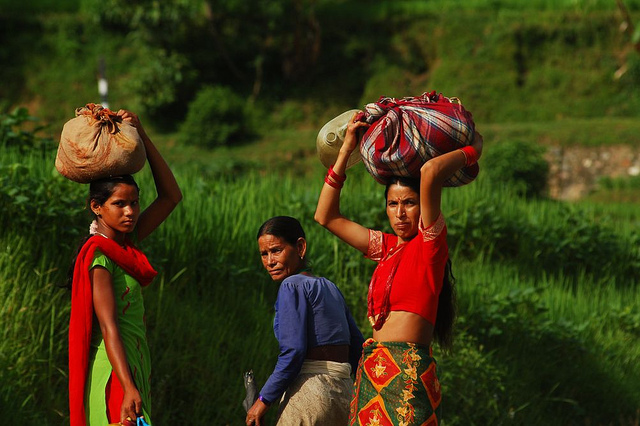Sustainable Agriculture in Nepal Reducing Food Insecurity

Nepalese society faces challenges regarding agricultural disparity, a cultural problem rooted in the caste system. Sustainable agriculture in Nepal is essential to the growth and development of the Nepalese.
According to GlobalGiving, malnutrition and food insecurity are common obstacles that Nepalese society endures. Subsistence farming, a system in which farmers grow enough food to feed their own families, does not always provide adequate nutrients and is hindered by severe weather.
Educate the Children (ETC) aims to teach, provide resources such as agricultural tools and high-quality seeds and improve food security. Agriculture in Nepal is not providing enough security for families. Educate the Children’s Agricultural Development Program offers assistance to Nepalese women with practical farming skills to produce greater quantities of nutritious food. The ADP will provide sustainable agriculture in Nepal through organic cultivation that can decrease the use of chemicals.
ETC provides their women’s groups with seeds, tools and access to credit via group funds to rent land for enough produce to sell. Sustainable agriculture in Nepal is also being taught to young children, training them on planning, cultivating and harvesting gardens. The knowledge they learn is passed onto their families to demonstrate the importance of sustainable agriculture.
The International Food Policy Research Institute (IFPRI) believes in the power of sustainable agriculture, noting that agriculture makes up one-third of Nepal’s GDP and is the main source of income for two-thirds of the population. Food security and adequate nutrition are important objectives for Nepal. Their solutions for establishing sustainable agriculture in Nepal include education and training for people of all ages, particularly women, who have an opportunity to improve nutrition and health.
The Sustainable Agriculture Development Program in Nepal (SADP) aims to improve the resources of Nepalese farmers and communities via an understanding of agricultural development and promoting sustainable farming techniques. Actions taken by SADP to promote sustainable agriculture include demonstrating various farming methods, teaching communities the necessary skills needed for food production and establishing resources for Nepalese communities that can be sustained.
Sustainable agriculture in Nepal is a work in progress with development and changes underway. This work will not only help create an environmentally friendly society, but also improve the lives of many throughout Nepal.
– Jennifer Serrato
Photo: Flickr
